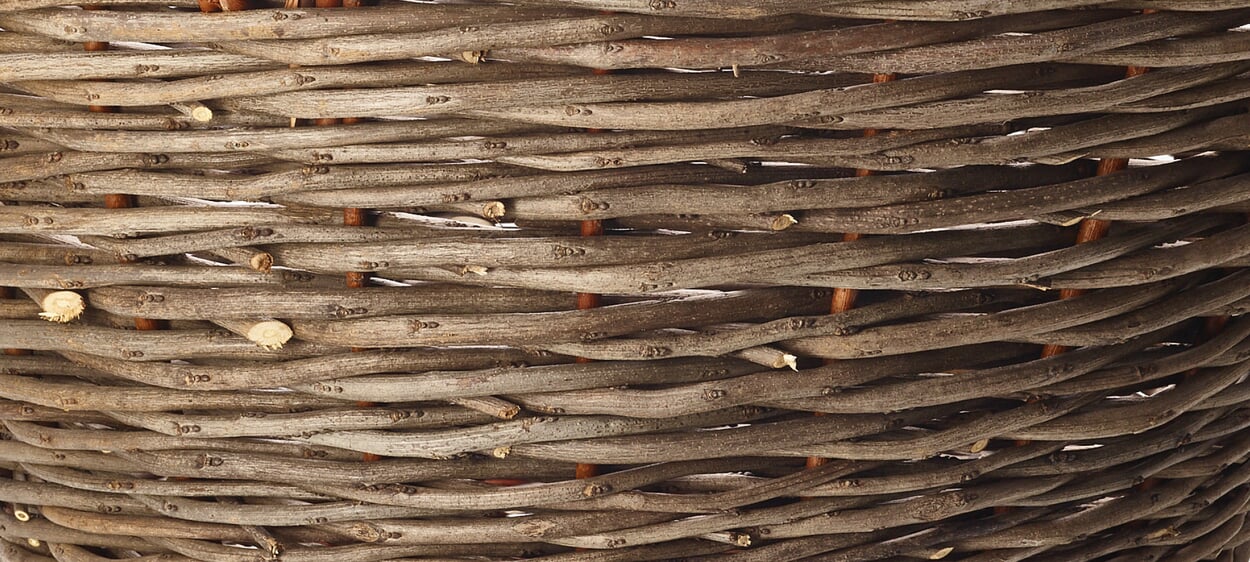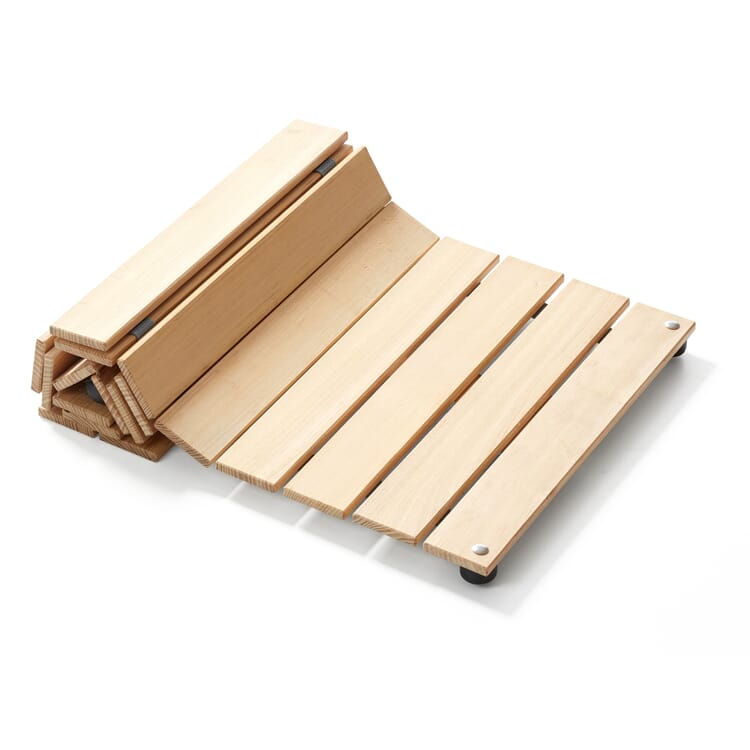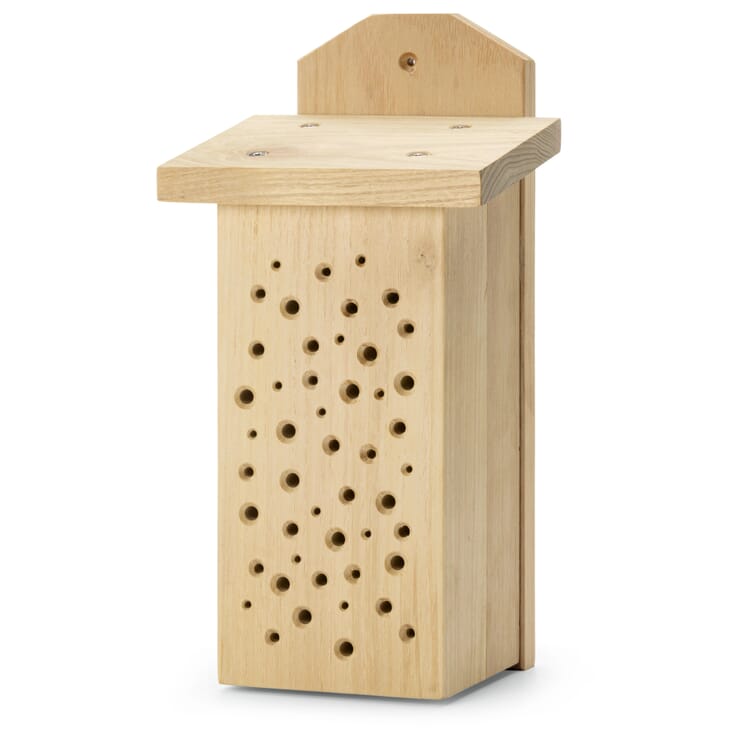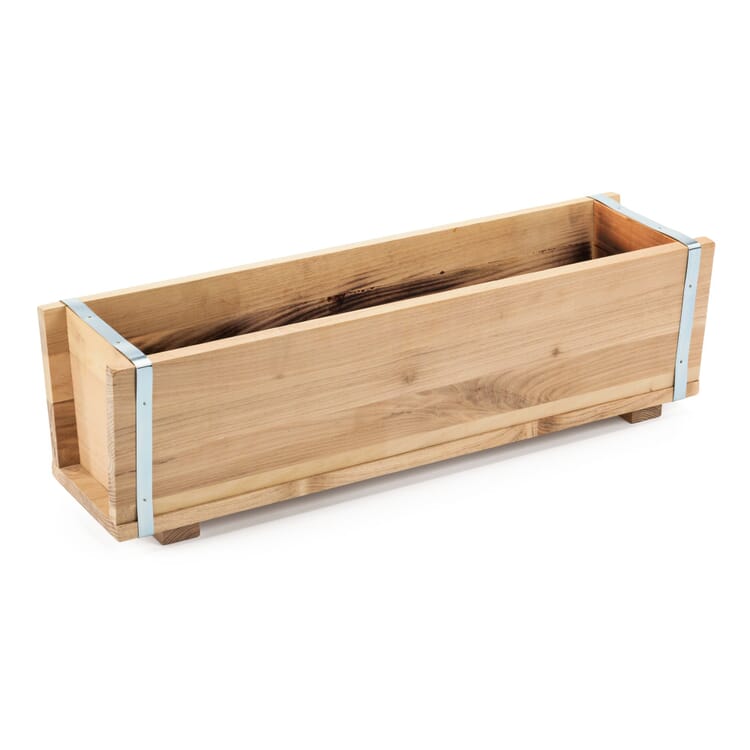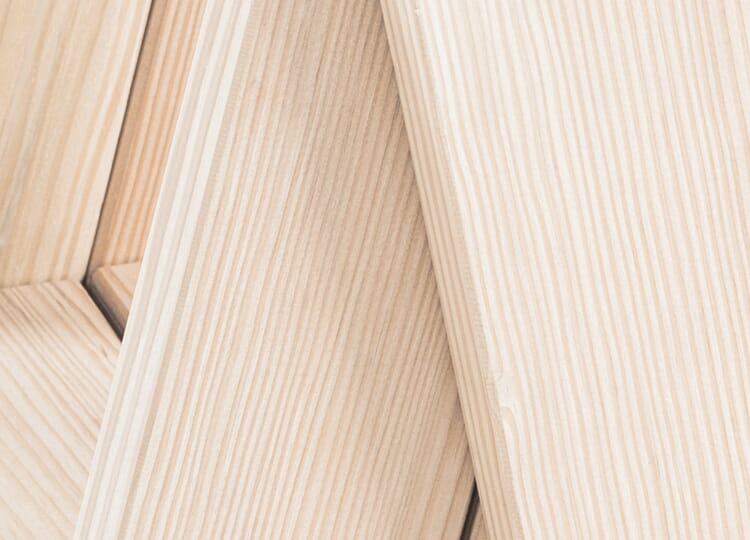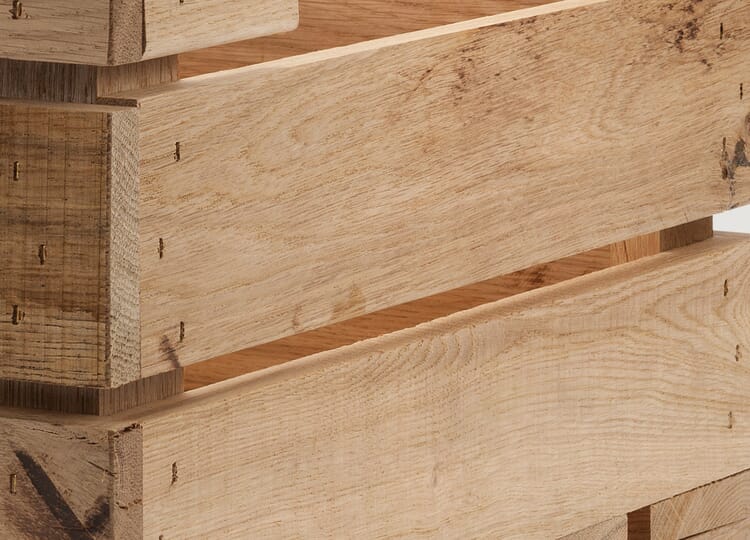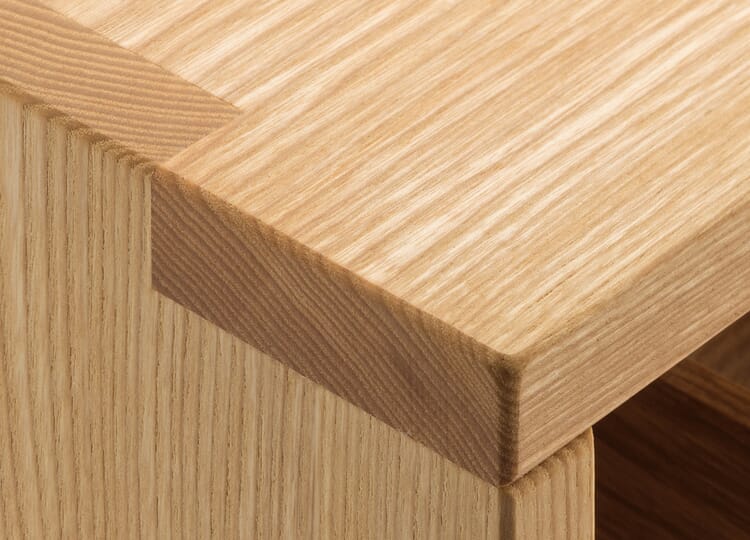Material
Robinia wood. The most weather resistant European wood
The black locust is a fast-growing, light-loving tree species with rather low soil requirements. It copes well with heat and drought and is therefore considered a tree of the future in climate change. The leaves of the robinia are similar to those of the acacia, and both tree species belong to the legume order (Fabaceae), which has given the robinia its Latin name "Robinia pseudoacacia". It is commonly known as "false acacia" or "false acacia". Initially cultivated mainly as an ornamental and avenue tree, Robinia has become an important commercial tree species in Europe in recent decades due to its natural durability and high mechanical characteristics. Most Robinia trees are cultivated in Hungary, followed by France and Romania. In Germany and Austria, the populations are still relatively small.
The properties of robinia wood
Robinia wood is one of the toughest and most valuable European timber. In its technical and physical properties, it is very similar to oak - in terms of gross density, compressive strength, tensile and flexural strength, it even surpasses the robust oak. And its high resistance to weathering virtually predestines it for use in the construction of garden furniture and in the field of garden equipment. The advantages in detail: - Robinia wood is the most weather-resistant European wood and very long-lasting. It is therefore a good and ecologically sensible alternative to tropical woods, which Manufactum does not use at all in order to protect the rainforest - Due to its high hardness and flexibility, Robinia wood is exceptionally resilient and load-bearing - qualities that are of great advantage especially in furniture construction.
- Thanks to its high tannic acid content, even untreated Robinia wood is insensitive to rot and resistant to pest and fungal attack. - With its olive to goldbrauncolor, the distinctive and vivid grain with clearly visible annual rings and its matte silky sheen, Robinia wood is also aesthetically pleasing. - Untreated Robinia wood shows a noble silver-gray patina over time. If you don't like the graying typical of wood, you can counteract this effect with appropriate wood care oils.
The black locust is a true bee pasture. From May to June, it produces a multitude of white, particularly fragrant and nectar-rich flowers. Honey bees in particular are busy collecting nectar here, making the robinia very interesting for beekeepers: During the flowering period, they like to set up their bee colonies in the vicinity of this so-called bee-harvesting plant. However, the robinia honey produced in Germany, Austria and Switzerland is often sold as acacia honey, although, strictly speaking, true acacia honey comes from the acacia tree, which, however, grows mainly in subtropical to tropical regions and must therefore be imported. Some beekeepers have now recognized the trend towards regionality and offer their honey under the name "robinia honey". Characteristics of this pure blossom honey are its light yellow, transparent color and its mild, slightly floral taste. A special quality feature is that robinia honey remains liquid for a long time thanks to its high fructose content.
Recommended Topics
With growth heights of more than 60 meters and trunk diameters of up to four meters, the Douglas fir is one of the largest trees in the world. The proportion of knot-free wood is correspondingly high, which is valued for its weather resistance and good strength values and can be used in a variety of ways both indoors and outdoors.
View moreOak wood is a slow-growing and therefore particularly heavy, dense-grained and robust wood, which is only surpassed in its natural durability by Robinia wood. The hard and decorative heartwood is used for a wide variety of applications - whether in interior finishing, as construction and furnishing wood, in the manufacture of vats and wine barrels, as well as in (garden) furniture construction and garden equipment.
View moreAsh wood is very long-fibered and one of the hardest and most load-bearing woods. In terms of strength and elasticity, it surpasses even the robust oak wood. In addition, it impresses with its color variability and its distinctive drawings. Not least because of this, ash wood is one of the most sought-after domestic wood species.
View more
